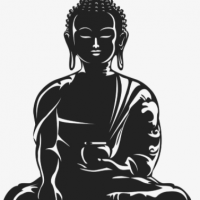“No amount of anxiety makes any difference to anything that is going to happen.” ~ Alan Watts
~
Panic attacks, stress, aggravation, and on-and-off depression bouts all pile up until a trigger is pulled—the trigger of depersonalization.
It’s a weird disorder—in that it feels as if your soul has been taken out of your body. As they say, only the wearer knows where the shoe pinches. It’s hard to describe depersonalization—only the sufferer experiences the horrors of it.
Depersonalization can make us feel hopeless. It’s when the fabric of our physical existence is taken away from us.
Suffering from depersonalization all together feels like a lost battle, but in the depths of heart, a small grain of hope always remains. This battle between hope and despair is the real pain of depersonalization. Hope slowly brings us closer to recovery, but the anxiety grown out of despair takes us back to the dungeons of the unreality in depersonalization.
Science can offer treatment for our mental ailments, but it’s nothing more than a Band-Aid; a surface treatment. When I experienced depersonalization, I was ready to give up everything in exchange for a cure. I was desperate for a cure, but I was searching in the wrong places; this search exhausted me, mentally and physically. The futile search was circular, as is the cycle of anxiety—taking small steps forward, but having panic attacks that bring us back to square one.
Depersonalization and anxiety are a conundrum—rationality bottlenecks recovery. If the problem was initially lit off with rationality, it cannot be solved with the same tool.
I realized if I dealt with depersonalization with the same fuel that ignited it, the flame would only blaze higher. It had to be tackled with something else, and that something else was ancient wisdom and philosophy.
The search for ancient knowledge revealed many things to me about the basic tenants of life and how it’s supposed to be lived. Ancient wisdom opened up my eyes, which were clouded by modern scientific thought .
Your thoughts are not true.
One of the core tenants of all spiritual knowledge is to free us from the strong grip of our thoughts; Buddhist teachings revealed this hidden truth in a palpable manner.
In retrospect, I recounted many events in my life that happened in a completely different way than I had imagined these events would turn out. One of the main objectives of any form of meditation is to make one realize how futile anxious thoughts are. The anxiety during depersonalization is an ambitious worry—untangling from the grip of my own thoughts was the way to recovery.
The root cause of depersonalization was nipped at the bud, and subsequently bodily manifestations (the symptoms) went away on their own.
Ancient wisdom has the answers.
Buddhism, Sufism, and other spiritual traditions have timeless wisdom to offer and answered some of the tough questions, not with rationally. Some questions can’t be answered with the same language they were asked.
Depersonalization and other anxiety related disorders are often times philosophical conflicts with bodily manifestations; one can experience many symptoms, such as feeling of unreality.
As such, these disorders are difficult to understand and seemly impossible to resolve, but when we change our approach to the problem, issues like depersonalization and anxiety dissolve on their own.
~







Read 0 comments and reply